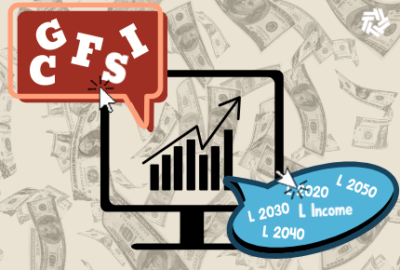
A 38-year retirement: Can you handle it?
Planning for retirement isn't rocket science, but in some ways it is more challenging because ultimately you'll be riding that rocket however long it takes.
The good old days, a time when there was a long career, a gold watch, then a brief and frugal retirement are mostly gone. Some people are now retired for at least as long as they worked. Which can be a blessing or a curse. Things have changed. Mostly for the better. And yet..
The lead obituary in Monday’s Washington Post was about a 99-year old civil servant who had been retired since 1983. Do the math! 38 years is a long time to do anything, whether its working at the same place, being married or being retired. And in the latter case, you start out with a reduced income and under a cost of living adjustment (COLA) formula that doesn’t keep pace with inflation, especially as you get older and your medical costs go up.
If you are one of the 75,000 feds with million dollar TSP accounts and are under the old Civil Service Retirement System (CSRS ), your financial life in retirement should be pretty good. But most people don’t have anywhere near that amount in their federal 401k plan. Also, most will retire under the Federal Employee Retirement System (FERS), which has a diet COLA formula, meaning that over time their monthly annuity payments can be drastically reduced by inflation.
So what to do? Work until you drop? Wind up staying 5 years longer than you planned? Leave only to find out later you really couldn’t afford it? You have to live with your decision. That is a challenging thought! But you can do it, and do it right with a little thought and preparation.
Today’s guest on Your Turn is Tammy Flanagan. She’s a former fed who is an expert on all phases of retirement. Planning for retirement isn’t rocket science, but in some ways it is more challenging because ultimately you’ll be riding that rocket however long it takes. And that’s what we’ll talk about beginning at 10 am (EST) streaming live here or on the radio at 1500 AM in the Washington D.C. area.
She will be talking about eligibility to retire, health and life insurance, and your FEHBP plan. What kind of insurance will you need? What about state taxes on your benefits (many don’t tax them)? How much will you need in retirement to maintain, or even improve, your standard of living?
If you have questions, send them to me before showtime.
Nearly Useless Factoid
By Alazar Moges
Humans are not the only species that can be right or left handed. In a recent statistical integration of many different scientific studies on paw preferences in cats and dogs, it showed that about 36-to-46% of cats were left-pawed. In dogs, 31-to-53% were lefties. The low percentage of left-handers, only about 10%, in humans seem to be specific for us, as this rate is typically higher in non-human animals.
Source: Psychology Today
Copyright © 2025 Federal News Network. All rights reserved. This website is not intended for users located within the European Economic Area.
Mike Causey is senior correspondent for Federal News Network and writes his daily Federal Report column on federal employees’ pay, benefits and retirement.
Follow @mcauseyWFED
Related Stories

Are TSP investors — especially retirees — playing it too safe with G fund investments?




